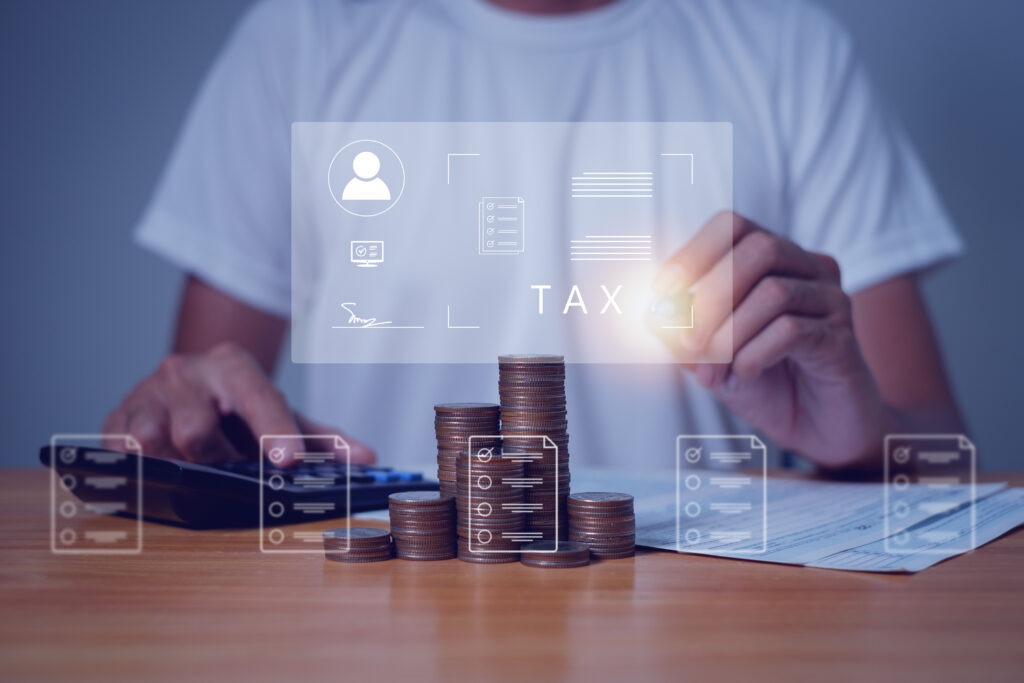When Making Tax Digital for Income Tax Doesn’t Apply: Exemptions and Digital Exclusion

Making Tax Digital for Income Tax will apply broadly to self-employed individuals and landlords, but HMRC recognises that not everyone can or should comply with digital requirements. Exemptions exist to protect those who genuinely cannot use digital systems or whose circumstances don’t warrant the additional complexity of digital reporting.
Understanding these exemptions matters because wrongly assuming you need MTD compliance creates unnecessary costs and administrative burden. Equally, missing a legitimate exemption opportunity might leave you struggling with unsuitable digital requirements when simpler alternatives exist.
The exemption system strikes a balance between HMRC’s digitalisation goals and the practical recognition that some taxpayers face genuine barriers to digital compliance.
Income Threshold Exemptions
When your qualifying income falls below MTD thresholds, you are not required to comply. If gross income from self-employment and property stays below £50,000 from April 2026, £30,000 from April 2027, or £20,000 from April 2028, you’ll remain outside MTD scope entirely.
You’ll continue using existing Self-Assessment processes instead of quarterly digital reporting and final declaration submission. Your compliance obligations don’t increase, and you avoid software costs and digital system requirements. But you’ll always have the option to comply with MTD voluntarily.
Example: Robert, who owns two rental properties generating £42,000 combined gross income, with no other qualifying income sources. His rental income keeps him below the £50,000 threshold for April 2026, so he’ll continue with annual Self-Assessment rather than joining MTD. However, he’ll need to monitor the £30,000 threshold for April 2027.
The threshold exemption applies automatically without requiring applications or HMRC approval.
Exempt Income Categories
Certain income types do not trigger MTD obligations regardless of the amounts involved.
- Employment Income from PAYE jobs doesn’t count toward MTD thresholds. Your £90,000 salary plus benefits won’t create MTD obligations unless you also have self-employment or rental income above thresholds. Employment income continues through existing PAYE systems rather than MTD processes.
- Pension Income from state pensions, workplace pensions, or private arrangements remains outside MTD scope. Whether you receive £20,000 or £60,000 in pension income, this won’t trigger MTD requirements or count toward qualifying income calculations.
- Investment Returns, including bank interest, share dividends, and Real Estate Investment Trust distributions, don’t create MTD obligations. Even substantial investment portfolios generating significant returns won’t establish qualifying income for MTD purposes.
- Capital Gains from property sales, share disposals, or other asset transactions remain outside MTD calculations. Selling rental properties for substantial profits won’t count toward qualifying income, though rental income received before the sale would count.
Digital Exclusion Exemptions
Some taxpayers cannot use digital systems due to personal circumstances or practical barriers. HMRC provides exemptions for these situations:
- Age or health barriers: older taxpayers without computer skills or health conditions preventing digital learning
- Physical disabilities: visual impairments, mobility issues, or cognitive conditions affecting computer use
- Poor internet access: rural areas with unreliable broadband or prohibitively expensive connections
- Religious beliefs: genuine religious practices conflicting with electronic record-keeping
- Power of Attorney cases: where neither the taxpayer nor the attorney can practically manage digital requirements
- HMRC service constraints: situations where HMRC cannot reasonably provide digital services
Automatic Exemptions
Some taxpayers are automatically outside MTD for Income Tax and don’t need to apply for exemption. You cannot sign up if you are:
- A trustee: including charitable trustees and trustees of non-registered pension schemes
- Without a National Insurance number: if you do not hold one by 31 January before the start of the tax year
- A personal representative: completing a return on behalf of someone who has died
- A Lloyd’s member: when filing in relation to your underwriting business
- A non-resident company: completing returns as a corporate landlord outside the UK
How to Apply for MTD Exemptions
The exemption application process requires demonstrating a genuine inability to comply with digital requirements rather than a simple preference for traditional methods.
Application Methods include contacting HMRC’s Self-Assessment helpline, writing formal exemption requests, or working through tax advisers familiar with exemption criteria. The application should clearly explain your specific circumstances and why digital compliance isn’t reasonably practicable.
Supporting Evidence strengthens exemption applications. Medical certificates for disability claims, geographic evidence for internet access problems, or professional assessments of digital capability help HMRC understand your situation.
Timing Considerations matter because exemption applications need processing time before MTD obligations begin. Apply early rather than waiting until compliance deadlines approach to ensure HMRC can assess your circumstances properly.
The Decision Timeline outlines HMRC’s aim to respond to exemption applications within reasonable timeframes, although complex cases may require additional information or assessment time. You’ll receive written confirmation of exemption decisions.
Continuing with Self-Assessment if Exempt
Exemption from MTD doesn’t exempt you from tax obligations. You’ll continue using existing Self-Assessment processes with familiar deadlines and requirements. Your tax calculation and payment obligations remain unchanged, but you are not obligated to the digital reporting requirements.
You’ll maintain annual Self-Assessment return filing by 31 January deadlines, continue with traditional record-keeping methods that suit your circumstances, and pay tax liabilities according to existing payment on account systems.
Planning Around Exemptions and Thresholds
Monitor your qualifying income annually to understand whether exemptions continue to apply or if changing circumstances might affect your MTD status. Income growth, new property acquisitions, or business expansion could move you above threshold exemptions.
Professional advice proves valuable if you’re uncertain about exemption eligibility or if your circumstances change. If you are unsure about your MTD exemption and need help with assessment or application processes, RentalBux is a great choice. Consider voluntary MTD participation even if exempt, particularly if you’re approaching thresholds or want to benefit from improved financial visibility that digital systems provide.